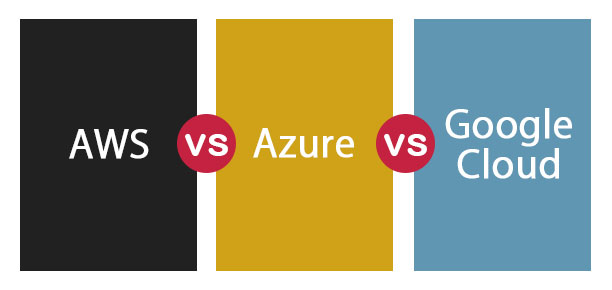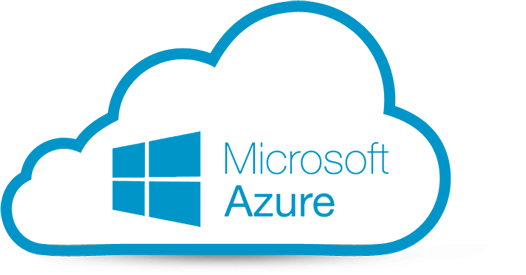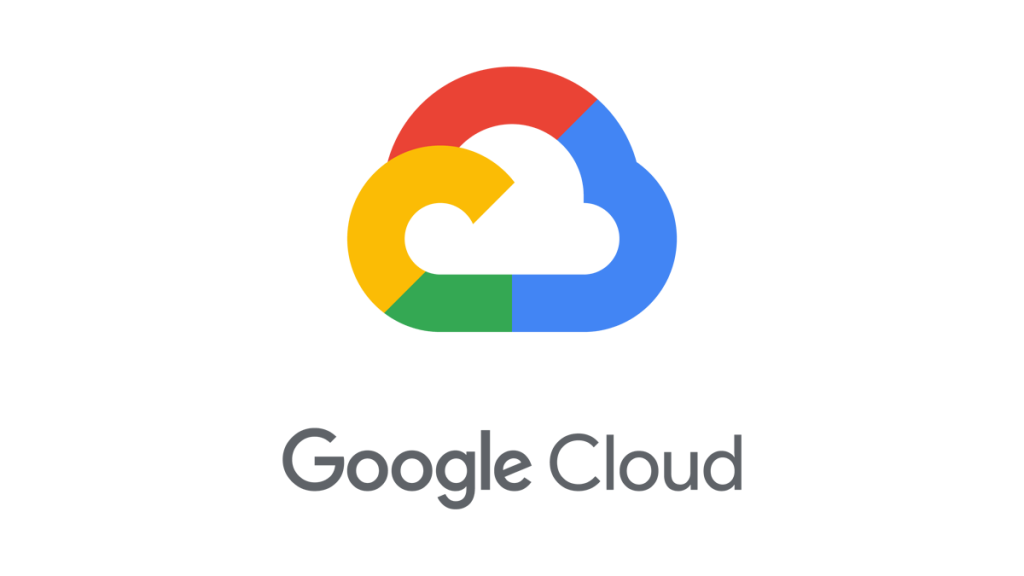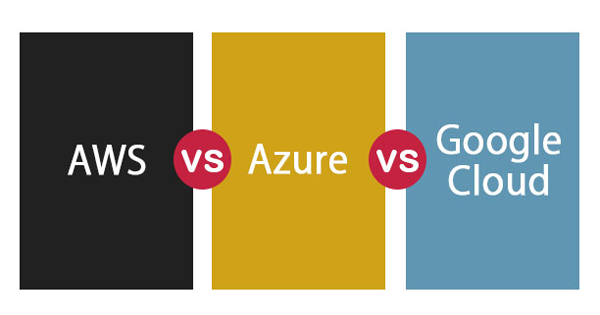
This is the universal fact that the rise in both cloud computing importance and popularity. Many Companies providing cloud services are now focused on optimizing enhance their services, cost and occupied several positions in the public cloud market. The cloud computing market is currently filled with multiple cloud service providers, but AWS, Azure, and Google Cloud Platform (GCP) proudly maintain the top three slots.
Here is the cloud comparison between AWS vs. Azure vs. Google:
Amazon Web Services:
Amazon Web Services (AWS) is a cloud computing platform that was introduced in 2002. It offers a wide range of software as a service (IaaS) as infrastructure, as well as the service platform (PaaS) cloud services and services (SaasS).
AWS provides the largest community with millions of active customers as well as thousands of partners globally. Most organizations are moving their IT management AWS using AWS to expand their business.

Flexibility, security, scalability, and better performance are some important features of AWS.
With a vast tool set that continues to grow exponentially, Amazon’s capabilities are unmatched. Yet its cost structure can be confusing, and its singular focus on public cloud rather than hybrid cloud or private cloud means that interoperating with your data center isn’t AWS’s top priority.
Benefits of Amazon Web Service:
- Easy to Use – AWS is designed to allow application providers, ISVs, and vendors to quickly and securely host your applications – whether an existing application or a new SaaS-based application.
- Flexible – AWS enables you to select the operating system, programming language, web application platform, database, and other services you need.
- Cost-Effective – You pay only for the compute power, storage, and other resources you use, without any long-term contracts or upfront commitments.
- Reliable – With AWS, you take advantage of a scalable, reliable, and secure global computing infrastructure.
- Scalable and high-performance – AWS tools, using Auto Scaling and Elastic Load Balancing, your application can be up or down depending on demand.
Microsoft Azure:
Microsoft Azure is also known as Windows Azure. It is a worldwide cloud platform used for the creation, deployment, and management of services. It supports many programming languages such as Java, Nodejs, C, and C #. The advantage of using Microsoft Azure is that it allows us to have a range of services without arranging and purchasing additional hardware components.
Microsoft Azure provides many computing services on the Internet including servers, storage, databases, software, networking, and analytics.

A close competitor to AWS with an exceptionally capable cloud infrastructure. If you’re an enterprise customer, Azure speaks your language – few companies have the enterprise background (and Windows support) as Microsoft. Azure knows you still run a data center, and the Azure platform works hard to interoperate with data centers, hybrid cloud is a true strength.
Benefits of Microsoft Azure:
- Ability to Scale on Demand – It can be difficult to predict how your business will grow, or if and when you will need additional resources for short-term ‘explosion’ of the amount of traffic or transaction.
- Flexibility – In a rapidly evolving technology space, you need a hosting solution that can evolve rapidly as your needs change. Azure is simple to customize and is an excellent application that provides the building blocks and services that will allow you to customize your need for the cloud.
- Cost Competitive – Azure operates on a pay-as-you-go model, which reduces upfront costs for small businesses, and those who sign contracts can receive additional enterprise discounts.
Google Cloud:
The Google Cloud Platform (GCP) was introduced by Google in 2011. This allows us to use Google’s products such as Google search engine, Gmail, YouTube, etc. Most companies use this platform to easily create, move and implement applications. cloud. This allows us to access these applications using a high-speed Internet connection. The advantage of GCP is that it supports various databases such as SQL, MYSQL, Oracle, Sam, and more.
A well-funded underdog in the competition, Google entered the cloud market later and doesn’t have the enterprise focus that helps draw corporate customers. But its technical expertise is profound, and its industry-leading tools in deep learning and artificial intelligence, machine learning and data analytics are significant advantages.

Google Cloud Platform (GCP) provides various cloud computing services, including computing, data analytics, data storage, and machine learning.
Benefits of Google Cloud:
- Better Pricing Than Competitors.
- Private Global Fiber Network.
- Live Migration of Virtual Machines.
- Improved Performance.
- State of the Art Security.
The top three brands ruling the market will be compared based on the most common cloud services.
- Compute
- Storage
- Database
- Networking and Content Delivery
- Availability zone
Before going through these elements, let see feature comparison:
| Top Features | Azure | AWS | GCP |
| SLA(Service Level Agreement) availability | 99.9% uptime | Amazon EC2- 99.5% annual uptime Amazon S3 – A monthly uptime of at least 99.9% for a billing cycle | 99.95% monthly uptime |
| Max processors in Virtual Machines | 128 nos | 128 nos | 96 nos |
| Maximum Memory in Virtual Machines | 3800GiB | 3904GiB | 1433GiB |
| Marketplace | Azure marketplace | AWS marketplace | G Suite Marketplace |
| Supported OS | SLES, Windows, CentOS, Oracle Linux, etc | Core OS, Windows, SLES, Cloud Linux, Ubuntu, etc | Windows, SLES, CoreOS, FreeBSD, etc |
Compute:
It is one of the most fundamental roles in dealing with computing workloads. A cloud service provider should be able to scale the nodes in a large number in a fraction of a minute.
| Service | Azure | AWS | GCP |
| Maintaining and managing virtual servers | VM & VM scale sets | EC2 | Compute Engine |
| PaaS | Cloud services | Elastic Beanstalk | Google App engine |
| Easing of virtual private servers | Virtual Machine Image | Lightsail | – |
| Container Deployment | Container service | – | Container Engine |
| Running backend & system integration | Event Grid & Web Jobs | Lambda | Cloud Beta Functions |
| Container register | Container registry | EC2 registry | Container registry |
Storage:
This is yet another important function and is related to data storage.
| Storage service | Azure | AWS | GCP |
| Hybrid storage | StorSimple | Storage gateway | Egnyte Sync |
| Bulk data transfers | Data Box & Import/Export | Snowball edge, Import/Export disk & Snow Mobile | Storage transfer service |
| Back-up solutions | Backup | Cold Archive storage & Storage gateway | – |
| Disaster recovery | Site recovery | Disaster recovery | – |
Database:
Database comparison is required for database workloads.
| Database services | Azure | AWS | GCP |
| Caching | RedisCache | ElastiCache | CloudCDN |
| Object Storage | Blobs and files | S3 | Cloud storage block |
| Block storage | Page Blobs | EBS | Persistent disks |
| Indexed NoSQL | Cosmos DB | DynamoDB | Datastore, Big table |
| Database migration | Database migration services | Database migration services | – |
Networking Service:
| Networking service | Azure | AWS | GCP |
| Virtual Network | Virtual Networks | Amazon VPC | Virtual Private cloud |
| Elastic load balancer | Load balancer | Elastic load balancer | Cloud load balancing |
| DNS | Azure DNS | Amazon Route 53 | Google Cloud DNS |
| Peering | ExpressRoute | Direct Connect | Google cloud interconnect |
Availability Zones:
AWS is the oldest so he has more time to expand your network. AWS hosting with GCP and Azure in multiple locations but there is difference in availability zones:
- At present, AWS has 66 availability zones with 12 on the anvil.
- Azure caters to 54 regions worldwide and is available in 140 countries.
- GCP is available in 20 regions around the world with 3 more on their way.
Although AWS, Microsoft Azure, and Google Cloud Platform Computing, Management, offer a variety of high-level features in terms of storage and other services, but between these differences too.
